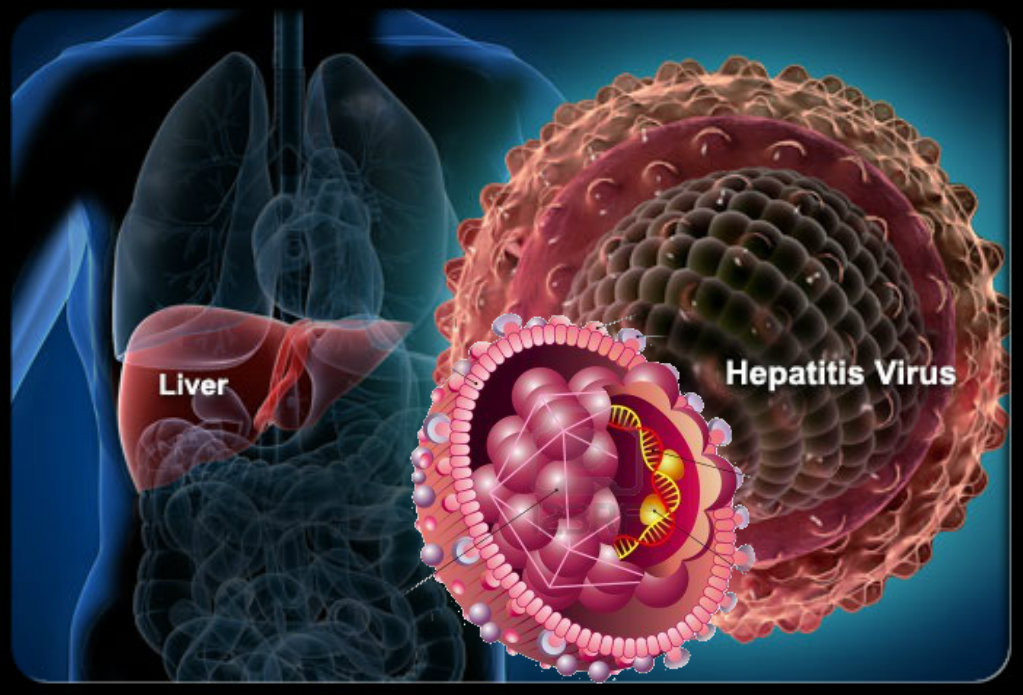“Early Detection and Treatment of Hepatitis C: Recognizing the Signs and Finding Relief”
Hepatitis C is a viral infection that primarily affects the liver. The virus is transmitted through blood-to-blood contact with an infected person, and it can cause both acute and chronic hepatitis. According to the World Health Organization (WHO), around 71 million people globally have chronic hepatitis C infection, and the virus causes an estimated 400,000 deaths each year. The good news is that hepatitis C is treatable, and early detection and treatment can prevent serious liver damage and even cure the infection. In this article, we will discuss the early signs of hepatitis C and the available treatments.

Early Signs of Hepatitis C
Hepatitis C infection often does not cause any symptoms in the early stages, and many people can live with the virus for years without realizing they have it. When symptoms do occur, they can be mild and easily overlooked, leading to delayed diagnosis and treatment. Some of the early signs of hepatitis C include:
- Fatigue: Feeling tired and lethargic is a common symptom of hepatitis C. The virus can cause a general feeling of unwellness and lack of energy, even with adequate rest and sleep.
- Muscle and joint pain: Many people with hepatitis C report muscle and joint pain, which can be a sign of inflammation in the body caused by the virus. The pain can be mild or severe and can affect any part of the body.
- Nausea and vomiting: The virus can cause digestive problems, including nausea and vomiting. These symptoms can be intermittent or continuous, and they may be accompanied by a loss of appetite or weight loss.
- Fever and chills: The virus can cause a low-grade fever and chills, which can be a sign of an immune response to the infection.
- Jaundice: Jaundice is a yellowing of the skin and eyes caused by a buildup of bilirubin in the blood. It is a common symptom of hepatitis C, but it usually appears later in the course of the infection.
- Abdominal pain and swelling: The virus can cause inflammation in the liver, which can lead to abdominal pain and swelling. Some people may also experience tenderness in the liver area.
It is important to note that these symptoms can be caused by other conditions as well, and the only way to confirm a hepatitis C infection is through a blood test.
Treatment for Hepatitis C
The treatment for hepatitis C depends on the type of virus and the severity of the infection. There are six genotypes of the hepatitis C virus, and each genotype requires a different treatment approach. The most common types of hepatitis C in the United States are genotypes 1, 2, and 3, and the recommended treatment for these genotypes is a combination of antiviral medications. The medications work by targeting the virus and preventing it from replicating, which can slow down or stop the progression of the infection.
The most commonly used medications for hepatitis C treatment are direct-acting antivirals (DAAs). These medications are highly effective and can cure the infection in more than 95% of cases. The treatment usually lasts between 8 and 12 weeks, depending on the genotype and the severity of the infection.
Before starting treatment, the healthcare provider will perform a series of tests to determine the type of hepatitis C virus and the level of liver damage. The tests may include a liver biopsy, which involves taking a small sample of liver tissue to assess the extent of the damage. The healthcare provider will also consider the patient’s overall health and medical history when deciding on the best treatment approach.
In addition to antiviral medications, lifestyle changes can also help manage hepatitis C and prevent further liver damage. These changes may include:
- Avoiding alcohol and drugs: Alcohol and drugs can further damage the
liver and interfere with hepatitis C treatment. It is essential to avoid these substances during treatment and beyond.
- Eating a healthy diet: A healthy diet can help support liver function and boost the immune system. Eating a diet rich in fruits, vegetables, and whole grains is recommended.
- Getting regular exercise: Regular exercise can help improve overall health and may also help improve liver function.
- Getting vaccinated for hepatitis A and B: People with hepatitis C are at increased risk of developing hepatitis A and B, which can further damage the liver. Vaccination can help prevent these infections.
- Taking care of your mental health: Living with a chronic illness can be challenging, and it is essential to take care of your mental health. Seeking support from friends, family, or a healthcare provider can be helpful.
In some cases, hepatitis C can lead to advanced liver disease, such as cirrhosis or liver cancer. If the virus has caused significant liver damage, a liver transplant may be necessary.
Conclusion
Hepatitis C is a viral infection that can cause significant liver damage if left untreated. Early detection and treatment are essential to prevent serious complications and cure the infection. If you are experiencing any of the early signs of hepatitis C, such as fatigue, muscle and joint pain, nausea, or fever, it is essential to see a healthcare provider and get tested. With the right treatment approach and lifestyle changes, it is possible to manage hepatitis C and live a healthy, fulfilling life.
